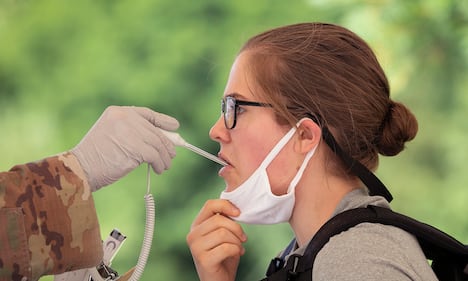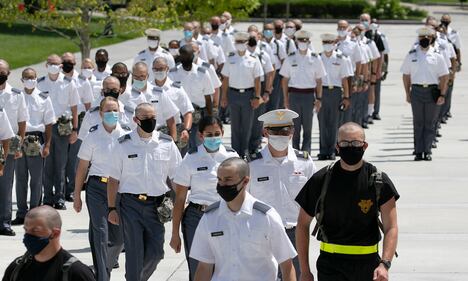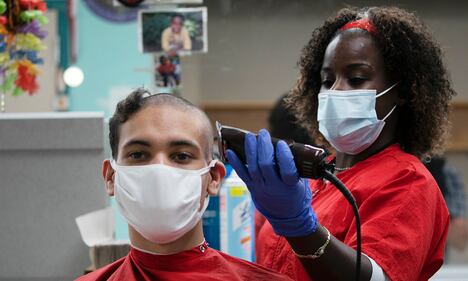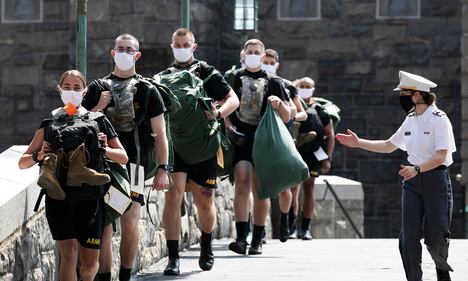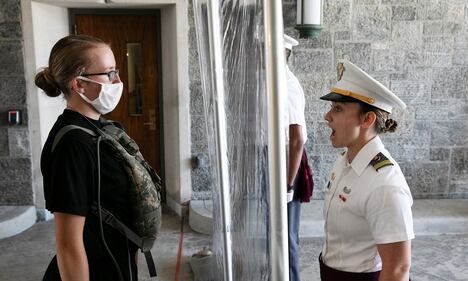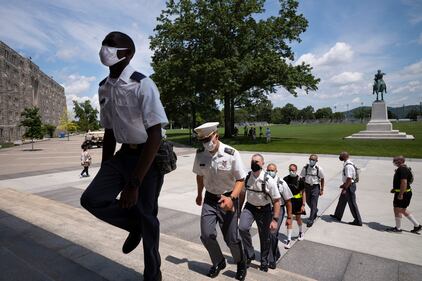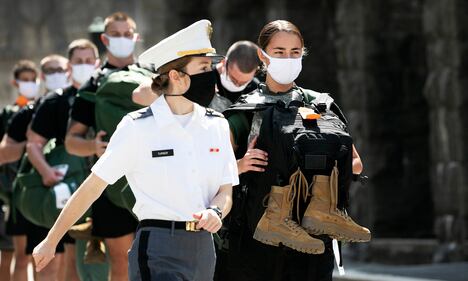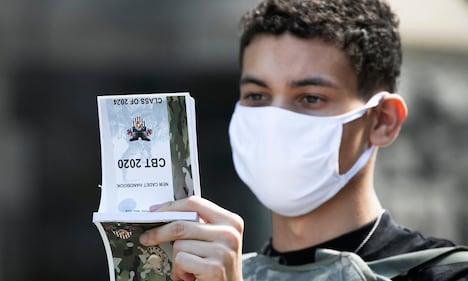WEST POINT, N.Y. — New cadet candidates arriving at the U.S. Military Academy on Monday were promptly tested for COVID-19, stood at attention in face masks and were given shouted orders to wash their hands.
The transition from civilian to West Point cadet is different for the Class of 2024 as the academy adapts to the pandemic, starting with Reception Day, or R-Day.
Reception Day still ushers in an intense period of training that introduces new arrivals to the rigors of cadet life. But this year, older cadets barked orders through face masks. New cadets will still have to endure the weeks of drills, marches and exertions of Cadet Basic Training, unofficially known as “Beast Barracks.” But that training will be two weeks shorter this year.
“I know that it’s shorter, but I trust it will be the same experience overall. I’ll still get to know all my classmates,” said Justin Suess of Batavia, Illinois. “I am prepared. I’ve been exercising hard.”
RELATED
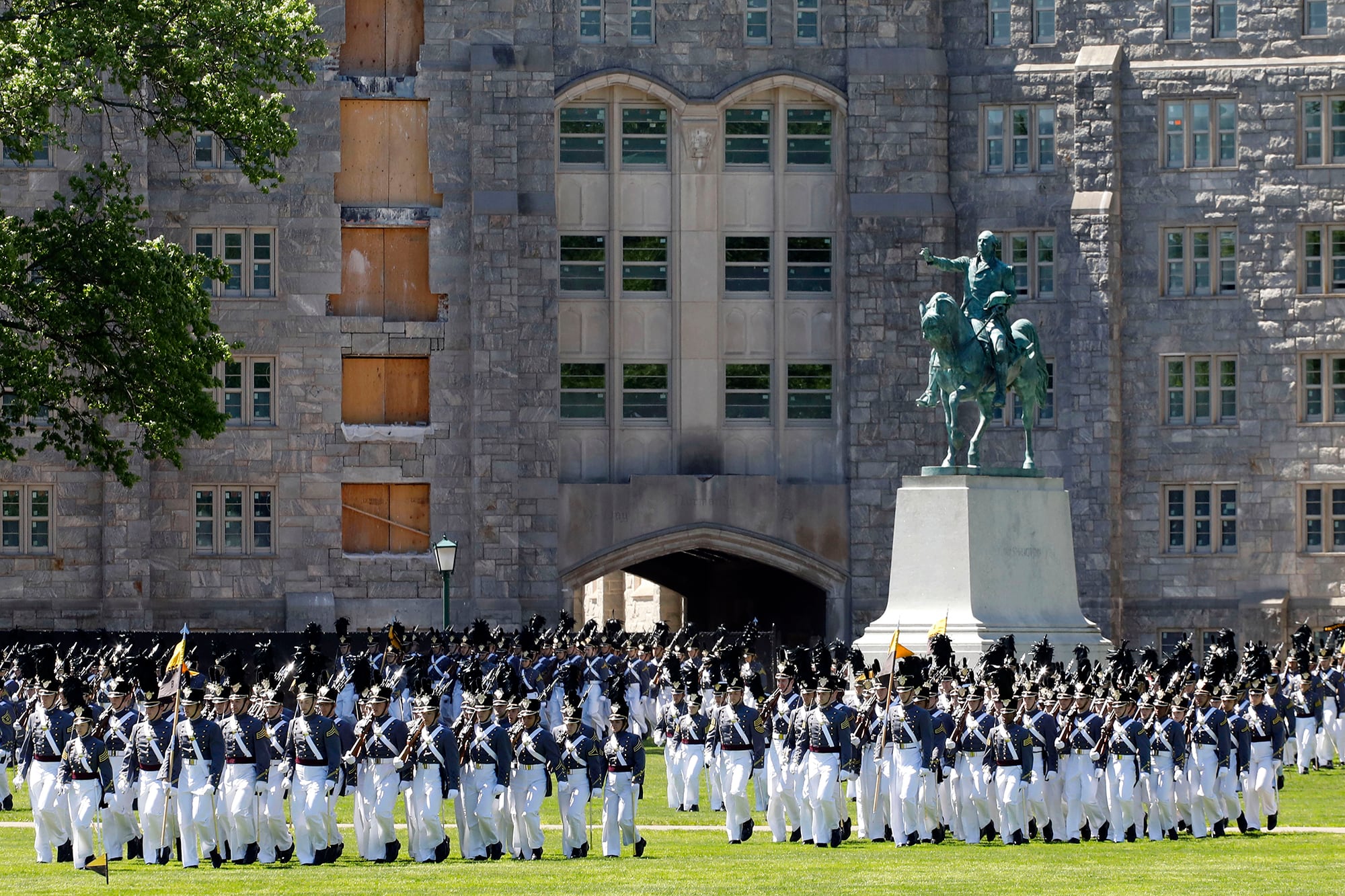
The more than 1,220 new cadets this year are arriving over three days, from Sunday through Tuesday, instead of one Reception Day, as usual.
New arrivals dropped off by their parents Monday morning took a moment for goodbye hugs before being tested for COVID-19. Results come back in an hour or so. Those who test positive — as four did Sunday — will be isolated for weeks but will still take part in training.
Image 0 of 8
Hundreds of new cadets spent Monday being hustled around in groups for the traditional round of uniform fittings, buzz cuts and lining up. They were ordered to “Hurry Up!” and “Move With a Purpose!” but also “Wash Your Hands!” at an outdoor water station. At another station, older cadets shouted orders to the new arrivals from behind a see-through plastic sheet. New cadets marched in socially distant intervals.
“We can mitigate exposure as much as possible, but we can’t eliminate it. What we can do is prevent transit from one person to the next by adhering to strict, non-pharmaceutical interventions,” said Lt. Col. Robert Kinney, who is in charge of R-Day operations.
RELATED
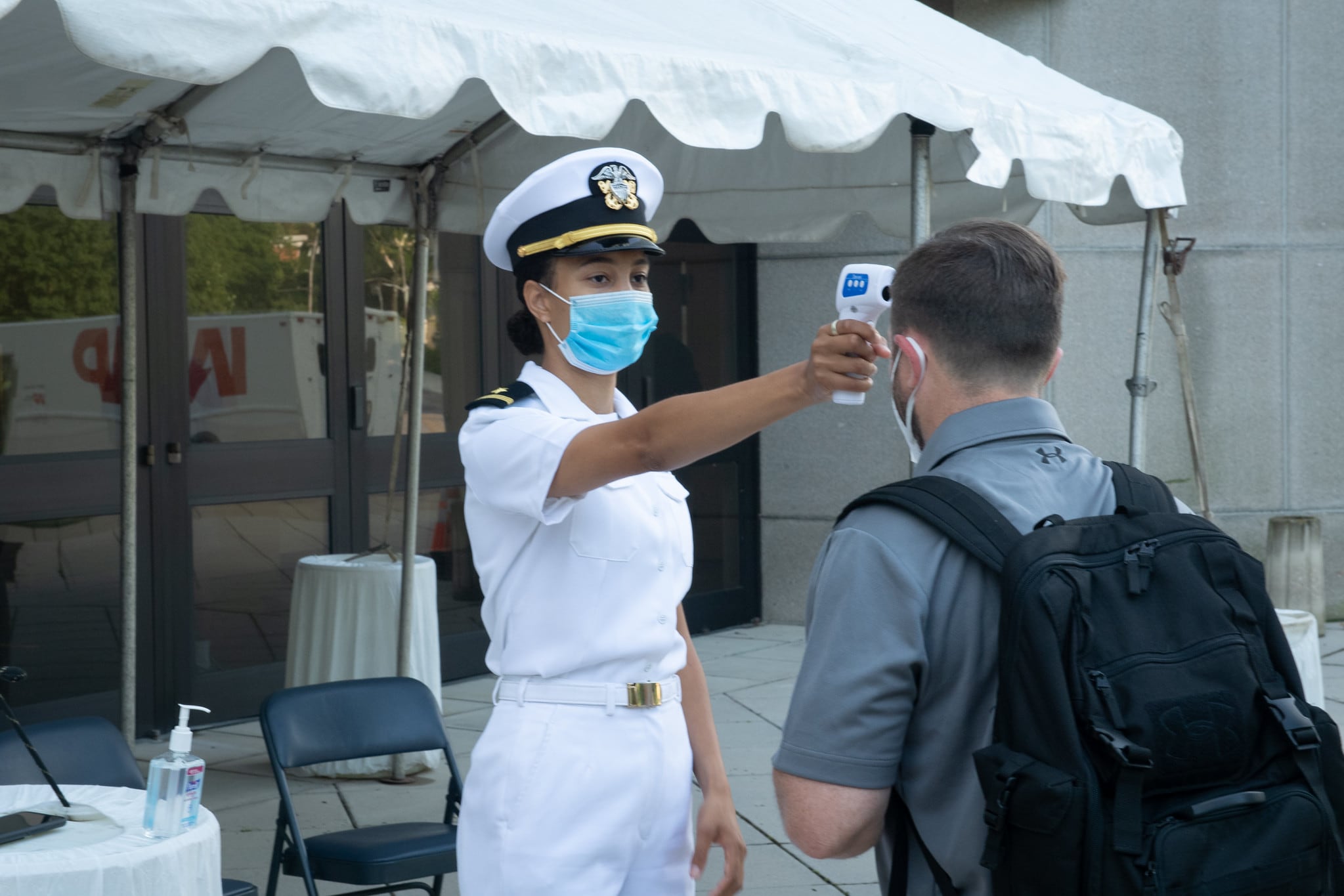
All new cadets will be monitored and spend most of their time in cohorts of 35 to 40, said Brig. Gen. Curtis A. Buzzard, commandant of cadets.
Though this year’s Cadet Basic Training has been shortened from six weeks to four, Buzzard said he’s confident they will be well trained.
They will still shoot, rappel, march, drill, navigate, spend four nights in field training and throw a live hand grenade, he said, though some training will be deferred until next summer.
“I still think we have a very good plan to acculturate them to West Point and the Army,” Buzzard said.
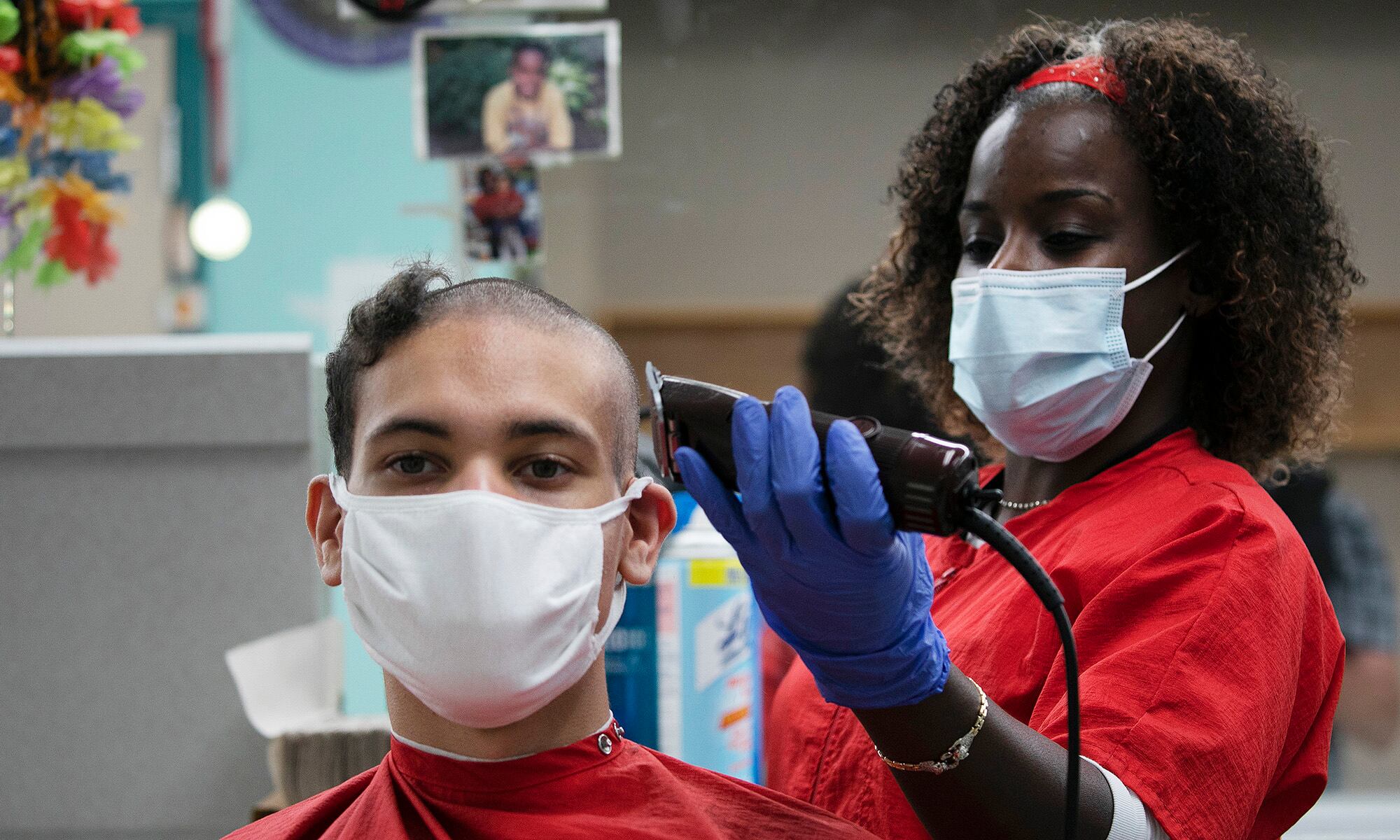
The changes in training mirror those made by the other service academies this summer, as well as by the military in general.
Army soldiers undergoing Basic Combat Training are monitored and initially have limited contact with others for 14 days as they focus on academic training. Members of the smaller cadres then join the rest of the trainees for the remaining weeks of training.
At West Point, new cadets will be formally accepted into the Corps of Cadets after training.
Class of 2021 Cadet Morgan Ammons of Fort Knox, Kentucky, is especially pleased that the Class of 2024 includes Dylan Ammons, her younger sister, who arrived Sunday for training.
“I think it will be a little more challenging,” said the elder Ammons. “They’re still doing all the things that are required of them in the six weeks in four weeks. So it will be a little more fast paced.”

